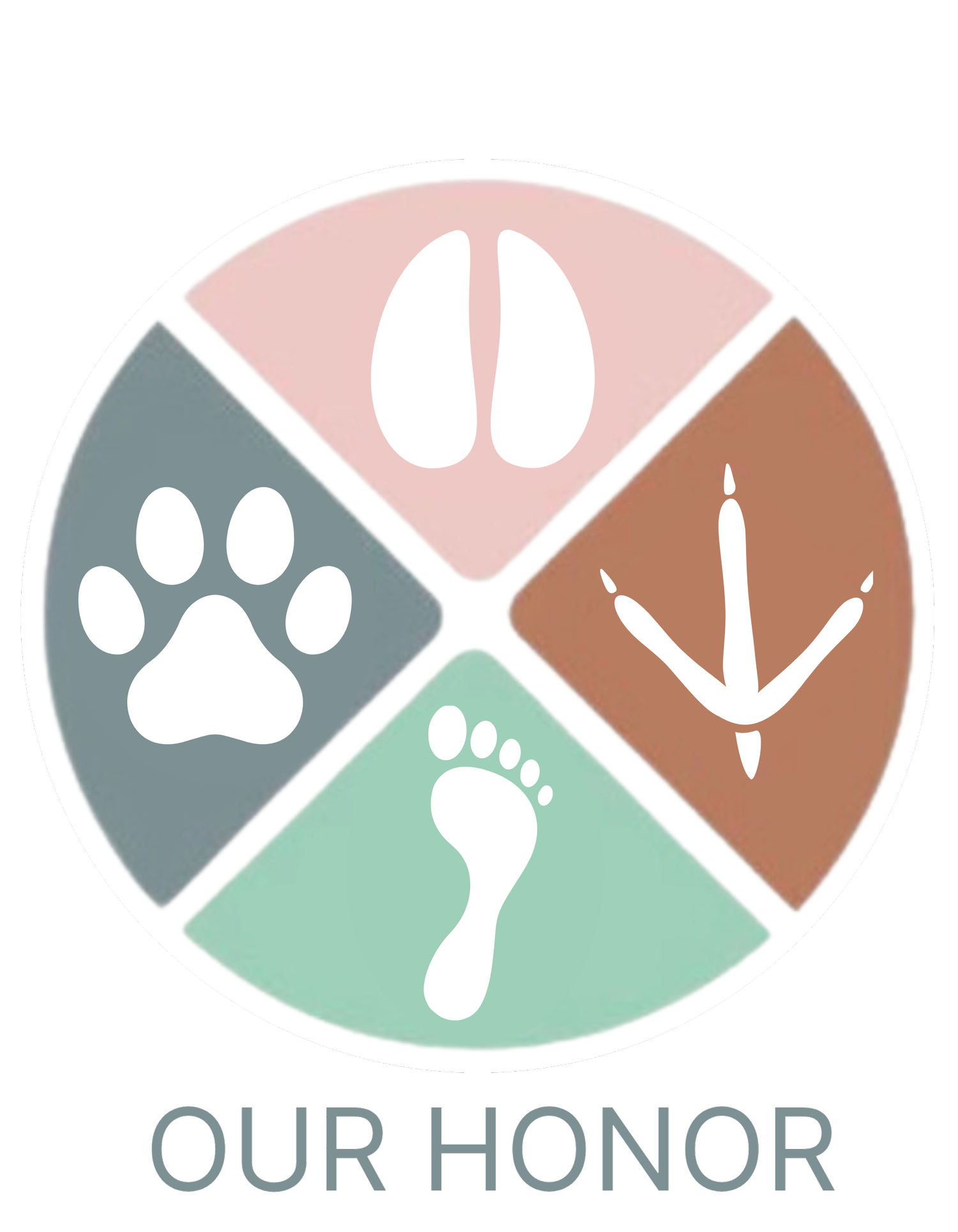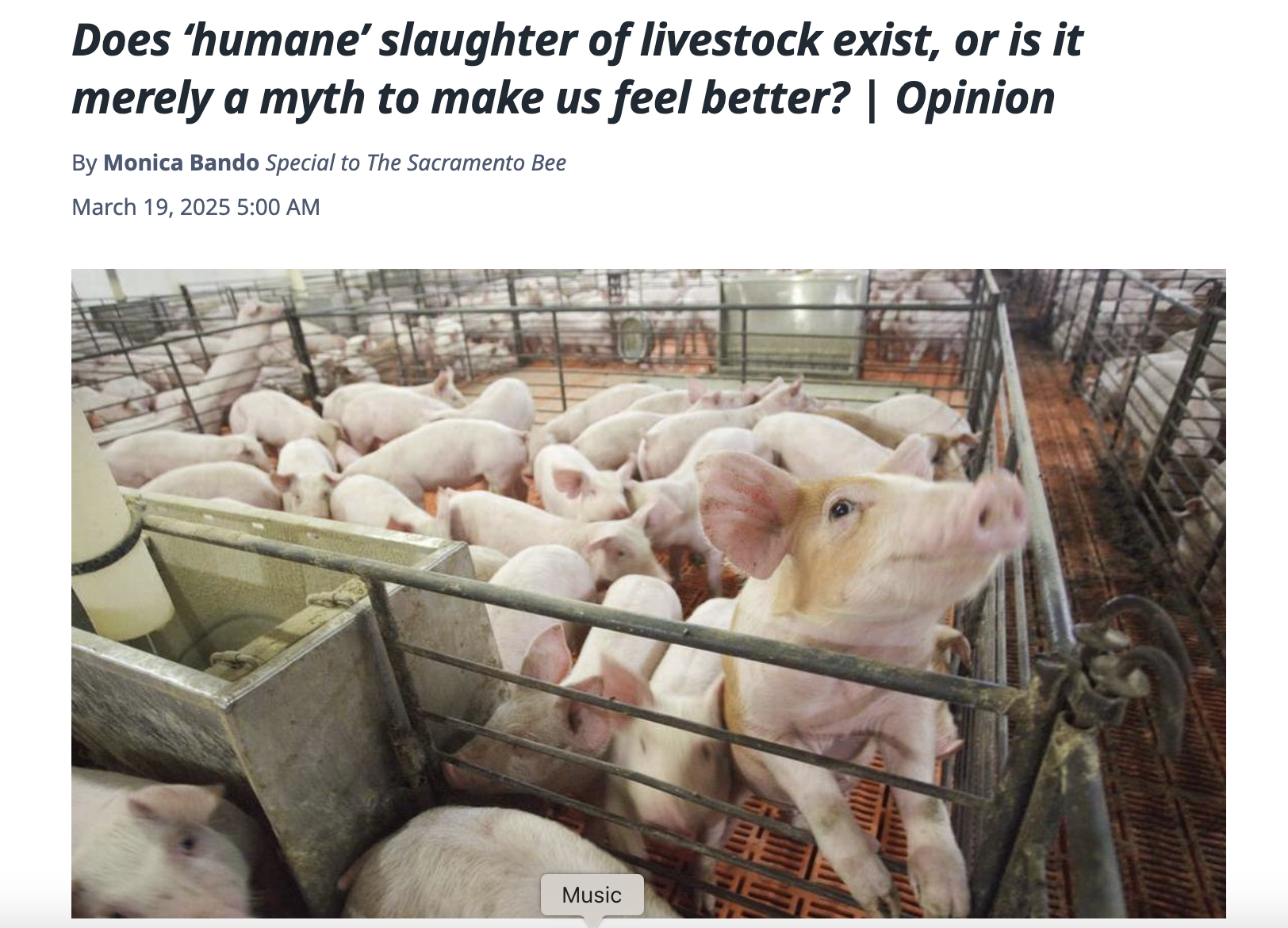Does Humane Slaughter Exist?
Veterinarian Dr. Monica Bando recently published an op-ed in The Sacramento Bee, challenging the legitimacy of industrial slaughter and calling for a future where animals are no longer killed for food. We brought her words to life in a narrated YouTube video—it sparked strong reactions.
One viewer left the following comment:
“You need to offer a better way of slaughter otherwise people will do it at home in all manner of ways. Just saying 'bAn sLaUghTeR' doesn't cut it. You say you're all about animal welfare but your claims are insincere and lack integrity if you are unwilling to suggest a better way to slaughter meat animals because at the end of the day the vast majority of people will continue to consume meat whether you like it or not."
This response reflects a common criticism faced by those of us advocating for structural change: that unless we offer a "better" way to kill animals, our concerns about welfare don't count. But this framing ignores the deeper forces driving demand for meat, the corporate capture of our food systems, and the uncomfortable reality that veterinarians have long been used to legitimize this harm.
Here’s our response:
You say we need to offer a “better way to slaughter,” but I have to ask: if there were a truly better, less cruel way to slaughter animals, wouldn’t meat-eaters already be advocating for it? Wouldn’t the industry have adopted it by now?
The truth is, the industry resists meaningful reform—even marginally better practices cut into profit margins. That’s why we believe the real path forward is not optimizing killing, but incentivizing and investing in animal-free forms of food production.
You mention that “the vast majority of people will continue to eat meat whether you like it or not.” But that misses a critical point: consumer demand doesn’t exist in a vacuum. Multinational corporations shape that demand through marketing, government lobbying, and tight control over our food systems. And no matter how informed or conscientious consumers try to be, the system is rigged:
If you hunt your own food, your taxes still subsidize modern industrial animal-based protein production.
If you buy “local” or “humane” animal products, you are still forced to pay for the worst corporate offenders.
Even vegans and vegetarians contribute to these industries via their tax dollars.
That’s not a free market—that’s an unfair system.
As veterinarians, we see how deeply industry has co-opted our profession, using our authority to give industrial animal-based protein production the social license to operate. From welfare auditing to academic funding, the meat and pharmaceutical industries rely on veterinarians to legitimize these systems and shield them from scrutiny.
We’re part of a growing group of veterinarians who are actively withdrawing that license and questioning whether our profession should be in the business of legitimizing institutionalized cruelty.
And we know education matters. Research shows that educating the public about standard farming practices leads to decreased consumption of animal products:
This meta-analysis of 100 studies found that interventions mentioning or portraying farm animals consistently reduced meat consumption, purchase, or related intentions, at least in the short term, with meaningfully large effects.
In this study, Eric Schwitzgebel, Bradford Cokelet, and Peter Singer divided over 1,000 UC Riverside undergraduates into two groups. One group engaged with materials on the ethics of eating meat, while the control group focused on charitable giving. The researchers tracked students' meal purchases and found that meat consumption declined in the group that discussed animal ethics, whereas it remained unchanged in the control group.
This study examined the impact of providing information about meat consumption's role in climate change on students' dining choices. The intervention led to a measurable decrease in meat consumption, with effects persisting for up to three years.
So no, we’re not just saying “bAn sLaUghTeR.” We’re offering a different vision: one where people aren’t forced to choose between harm and hypocrisy, where the veterinary profession stands with animals—not with the industries profiting from their suffering—and where people can eat in ways that align with their values.
We believe that future is possible. And we’re building it.

